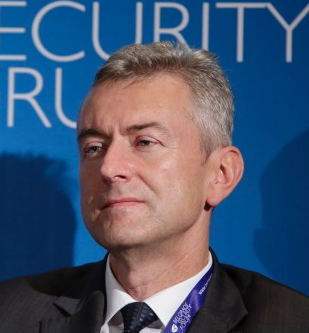
Artur Gruszczak
JUK has been/continues to work very much on the future of EU enlargement. The following are examples for enlargement projects of JUK:
2023-2026, Horizon Europe, REDIRECT. The REpresentative DIsconnect: diagnosis and strategies for RECTification, JUK: partner in the consortium.
The project addresses the current transformation of democratic politics in Europe associated with the crisis of representation and regression of the demos-kratos linkage, known as „representative disconnect.“ The project applies an interdisciplinary and multi-level approach across a wide range of empirical dimensions of representative disconnect. It will provide recommendations for institutional reforms and ways to tighten links with citizens.
2022-2025, Horizon Europe, SHAPEDEM-EU. EU democracy support in its Eastern and Southern Neighbourhoods, JUK: Work Package 5 leader: EU Member States’ democracy support & democratic practices in the Eastern and Southern Neighbourhoods
The project sets out to rethink, reshape and review the EU’s democracy support policies in its Neighbourhood countries. Through its research, SHAPEDEM-EU aims to increase the EU’s accountability, transparency, effectiveness and trustworthiness and to make Neighbourhood countries more resilient, equitable and responsive to the needs of their local populations.
2022-2025, Horizon Europe, REGROUP: Rebuilding Governance and Resilience out of the Pandemic, JUK: partner in the consortium.
The project reflects on the EU’s future governance and policies affected by the Covid-19 pandemic. The problem of post-pandemic governance is all the more urgent and complex in Europe because it intersects with issues on the effectiveness, fairness and democracy of the EU sui generis multi-level order. The objective of REGROUP is to advise the EU on how to tackle its post-pandemic policy and institutional challenges.
2024-2027, Horizon Europe, MSCA Doctoral Network, EU-GLOCTER: EU Glocal Counter-Terrorism, JUK: beneficiary, partner in the consortium.
This project is based on the understanding that the terrorist threat the EU and its Member States face is transnational, fast-evolving and multi-faceted. It therefore calls for action and cooperation at the local, EU and global levels, which should also transcend the divide between publicly funded government agencies and private enterprise. EU-GLOCTER will provide cross-disciplinary training focused on the development of EU „glocal“ counter terrorism – thinking globally, acting locally. It will be supplemented by research and networking activities addressing counter-terrorism and de-radicalization problems.
The team has been also involved in the Flagship Project FUTURE DEMOCRACY LAB (FDL): Liberal democracy – evolution or existential crisis? New research perspectives: society – state – international system, carried out in the framework of the Research Excellence at the Jagiellonian University programme.
The main objective of the project is to create a platform for researchers analysing various aspects of transformations of liberal democracies, democratisation processes, and the liberal international order itself, approaching the issue from multidisciplinary perspectives, including resilience, security, fragility and disruptive performances of anti-democratic actors.
